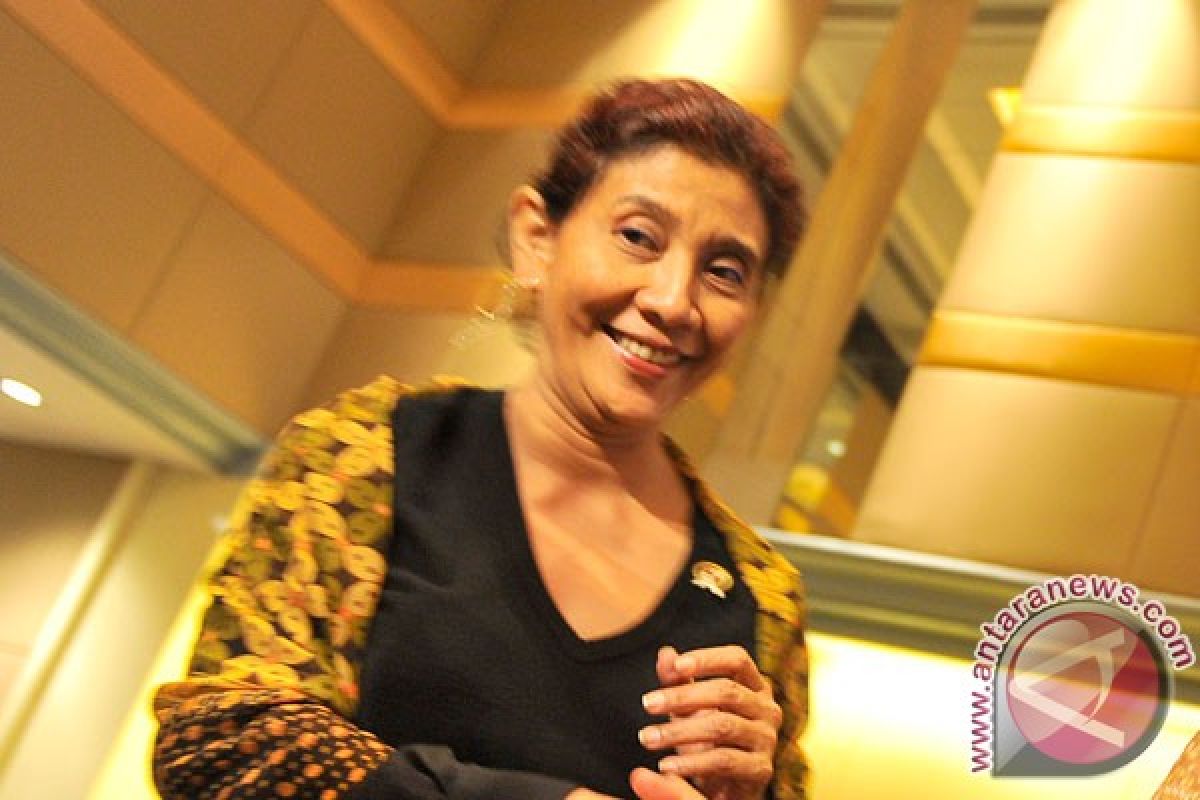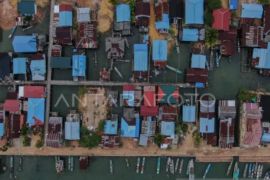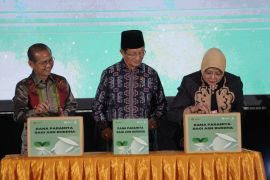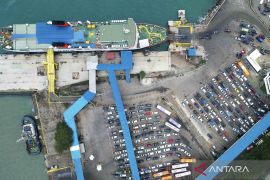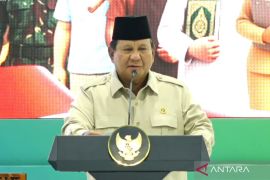Susi indicated the fishery regulation of G-20 is being unfair to Indonesia.Jakarta (ANTARA News) - As President Joko Widodo (Jokowi) is preparing to take part in the G-20 summit meeting, his energetic Marine and Fisheries Minister Susi Pudjiastuti criticized the multilateral grouping.
The next summit conference of the group of 20 advanced and developing economies will be held in Brisbane, Australia from Nov 15-16.
Susi indicated the fishery regulation of G-20 is being unfair to Indonesia.
"We want to be a real host and sovereign in our own country," Susi told business players in fishery sector in a meeting in her office here on Tuesday.
She said she had asked the fish processing and marketing director general Saut Hutagalung to be ready to give up the countrys membership of the fishery sector of G-20 as its regulations hurt the Indonesian interest.
She said Indonesia was given no significant decision making role in G-20.
A day earlier, Saut Hutagalung said it would be better for Indonesia to quit G-20 if the country loses more than gains from maintaining its membership.
"The Marine and Fisheries Ministry is drafting a letter about that," he said when asked his confirmation about his statement.
Saut said the marine and fishery minister was of the opinion that it would be better if the Indonesia is not committed itself to the G-20 in fishery sector.
By staying outside the grouping, the countrys fishery products could enter the market of other countries such as the United States with lower import duty, he said.
Another benefit from being outside G-20 is that the Indonesian fishery sector which is dominated by small businesses could receive assistance.
Mixed reactions
The statement has drawn mixed reactions with some favoring and other against the idea of giving up G-20 membership.
The Peoples Coalition for Fishery Justice (Kiara) said internal regulation should be readied and fixed before deciding to quit G-20.
"We would be better off being outside G-20 if we get things ready internally," Kiara secretary general Abdul Halim told Antara new agency here on Wednesday.
Abdul Halim said the marine and fisheries minister gave strong reason for giving up G-20 membership.
In fact the country had not gained anything from its involvement in G-20, he said, adding, on the contrary Indonesia remained dependent on other countries in food supplies.
Meanwhile an international law professor of the University of Indonesia Hikmahanto Juwana said it was worth considering the statement of the marine and fisheries minister if the country gained nothing from remaining in the G-20.
"It needs to be seriously considered by President Jokowi if it is true that Indonesian interest was hurt by maintaining its membership of G-20," Hikmanto said here on Thursday.
He said with his doctrine and new interpretation of the countrys free and active foreign policy that "All nations are friends until Indonesias sovereignty is degraded and national interest is jeopardized", the president should not hesitate to pull the country out of G-20 if it gains nothing from it.
"As the G-20 summit meeting is still days ahead, Jokowi could form a team to study the benefit of the country remaining in G-20. If what the marine and fisheries minister said was true President Jokowi does not have to attend the G-20 summit conference in Australia," he said on Thursday.
The team could study how much G-20 has accommodated the interest of Indonesia and other developing nations in its decisions, and whether Indonesia is given enough opportunities to speak about problems it is facing , he said.
"If the country was not given a say in the G-20 decisions, Indonesia should leave the grouping," he said.
In fact it was not the first time the grouping had been the target of harsh criticisms.
The G-20 which groups South Africa, The united States, Saudi Arabia, Argentina, Australia, Brazil, India, Indonesia, Britain, Italy, Japan, Germany, Canada, South Korea, Mexico, France, Russia, China, and Turkey and the European Union, accounts for 85 percent of the world Gross Domestic Products (GDP).
The G-20 was originally established in 1999 as a forum of cooperation in international finance .
The first summit conference of G-20 was held in response to financial crisis in 2007-2010 and reaction to suggestion that developing nations are not sufficiently involved in discussions and management of global economy .
The first summit conference was held in Washington DC in 2008 followed by the second and third in London and Pittsburgh in 2009, and in Toronto and Seoul in 2010.
Among the criticisms against G-20 came Norways foreign minister Jones Gahr Store in 2010.
Store said Norway, which is not part of the European Union, had no say in G-20, the same as 173 other non member countries.
In addition , G-20 had reduced the legitimacy of other more exclusive international organizations such as IMF, the World Bank and the United Nations, Sore said.
"G-20 is the biggest backward move after the World War II," he said.
In 2010, Singapore representative at the United Nations warned that decisions of G-20 would have their impact on all countries big and small.
Singapore was involved in the establishment of Global Governance Group (3G), that groups 28 non-G-20 countries aimed at channeling their opinions more effectively in the process of G-20.(*)
Editor: Heru Purwanto
Copyright © ANTARA 2014
